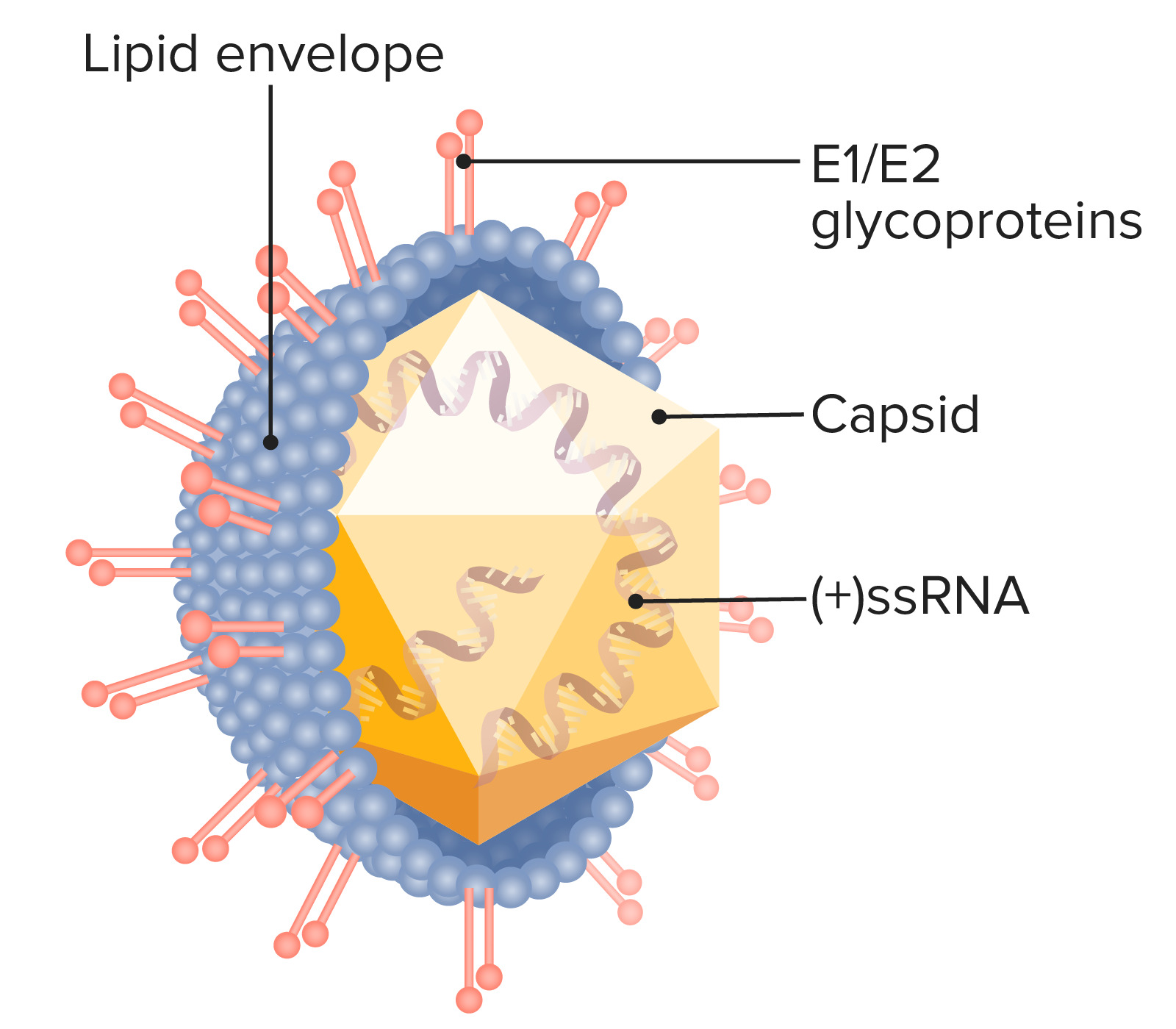Playlist
Show Playlist
Hide Playlist
Hepatitis C
-
Slides GIP Viral Hepatitis.pdf
-
Download Lecture Overview
00:01 Hepatitis C, so it's a single stranded RNA flavivirus. 00:07 It's a blood-born pathogen. 00:08 It also again has vertical, mom to baby, cross placental transmission, and sexual transmission. 00:17 As opposed to hepatitis B, which in the adult population is largely acute and self limited. 00:22 Hepatitis C is not. 00:25 Itself limited infection and only about 20% of patients, and 80% of patients will develop a chronic infection. 00:31 And that's where the kind of public health and global health risk comes from all of that chronic infection. 00:38 There is a very minimal risk of acute liver failure. 00:41 So it was less than 1%. 00:43 In hepatitis B, it's even much less than that. 00:46 So it's not going to be something that, that elicits a very profound and radical immune response. 00:52 But it is going to elicit chronicity. 00:55 So, for chronic infection, about 60 million people worldwide are chronically infected with hepatitis C. 01:01 And not only can they transmit the disease, but because they're not really generating a super duper effective immune response, they can progress with ongoing injury and inflammation to cirrhosis, and our increased risk for hepatocellular carcinoma. 01:18 The extra hepatic manifestations just as like those for Hepatitis B and Hepatitis C are due to immune complex deposition. 01:25 The laboratories involve looking for the RNA and hepatitis C. 01:29 Remember, it's not DNA, that's what's in hepatitis B, looking for the RNA and looking for the anti-hepatitis C antibodies. 01:37 Unfortunately, because there are so many serotypes, so many variants on the hepatitis C, we don't have a good vaccine. 01:44 But the good news is, over the last decade, we've become very good at treating and curing hepatitis C, so about 95% of chronically infected people can be cured. 01:57 Now, it's expensive. 01:58 And that therapy in the industrialized countries is something that we do because that limit spread. 02:06 But in developing countries, the therapy is still not widely used just because of the expense. 02:16 Again, acute and chronic infections and you can look at these figures and pour over them in detail. 02:23 But it's largely what we've described previously. 02:26 There's infection at times zero, there's acute viral replication, there will be injury to the liver, reflected in transaminase elevations. 02:36 And then we develop an immune response and we see antibodies that go up. 02:40 And if it's an acute infection, the virus goes away completely. 02:44 And we have a long term titer of IgG that will prevent subsequent reinfection and is completely curative. 02:53 In chronic infection, which is the most common and common situation and hepatitis C, we are now not able to clear, we may make antibodies against various components of hepatitis C, but we're never able to effectively clear it. 03:10 So that means we have ongoing infection of hepatocytes, potential passage to not infected hepatocytes and generation of inflammatory responses with injury, cirrhosis, etc. 03:23 But also we will have an immune complex deposition because we're chronically making viral elements, proteins, and we're making antibodies and we're forming immune complexes.
About the Lecture
The lecture Hepatitis C by Richard Mitchell, MD, PhD is from the course Disorders of the Hepatobiliary System.
Included Quiz Questions
What percentage of hepatitis C patients develop chronic infection?
- 80%
- 50%
- 70%
- 30%
- 10%
Why is no vaccine available for hepatitis C?
- There are around 80 subtypes.
- There are around 20 subtypes.
- A cure is available.
- Genetic drift
- Genetic shift
Customer reviews
5,0 of 5 stars
| 5 Stars |
|
5 |
| 4 Stars |
|
0 |
| 3 Stars |
|
0 |
| 2 Stars |
|
0 |
| 1 Star |
|
0 |




